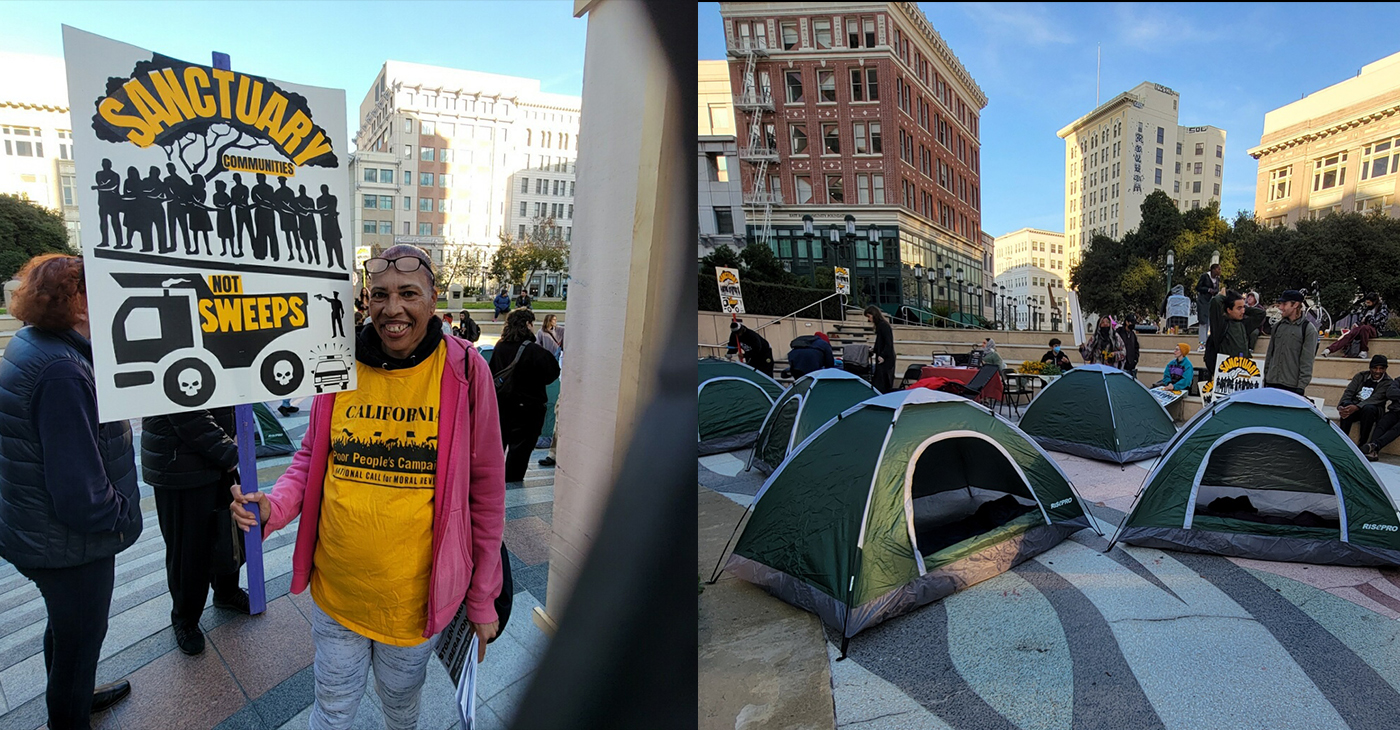Government
For the First Time, the Feds Criminally Charged a Pharma Distributor for the Opioid Epidemic

The federal government is escalating its action against bad actors in the pharmaceutical industry involved in the opioid crisis.
The federal government on Tuesday charged a major drug distributor — for the first time — for its role in perpetuating the country’s deadly opioid epidemic.
Rochester Drug Cooperative faces charges for conspiring to distribute drugs and defrauding the federal government — after the company didn’t report thousands of suspicious orders of opioids, including oxycodone and fentanyl.
Rochester is the sixth-largest distributor in the U.S., according to the New York Times.
The company, which as a distributor essentially links opioid makers and pharmacies, effectively admitted to committing the crimes it’s accused of in court on Tuesday.
“We made mistakes,” Jeff Eller, a Rochester spokesperson, said in a statement, according to the Times, “and RDC understands that these mistakes, directed by former management, have serious consequences.”
Separately, former chief executive Laurence Doud and former chief of compliance William Pietruszewski were reportedly charged, the Times reported.
According to the Times, the Drug Enforcement Administration investigated Rochester for two years, after the company violated terms of a previous civil settlement over opioids.
This is not the first time a drug distributor has faced serious legal consequences from the opioid crisis, with companies like Cardinal Health, CVS, McKesson, and Walgreens paying tens of millions of dollars in fines related to the opioid epidemic in recent years.
But this is the first time a distributor has faced federal criminal charges, similar to those filed against illicit drug dealers and traffickers.
The news of the charges comes as opioid makers and distributors face increasing legal consequences — in the forms of lawsuits, fines, and charges — for their involvement in today’s drug overdose crisis, which is the deadliest in US history.
Hundreds of lawsuits have now been filed against the companies. Several states are suing individually, and Oklahoma recently landed a legal settlement. A separate collection of about 1,600 lawsuits, largely from various levels of government, has been consolidated by a federal judge in Cleveland in an attempt to reach a landmark legal resolution to the opioid epidemic.
Since 1999, more than 700,000 people in the US have died of drug overdoses, mostly driven by an increase in opioid-related deaths. That’s comparable to the number of people who currently live in big cities like Denver and Washington, D.C.
Some estimates predict that hundreds of thousands more could die in the next decade of opioid overdoses alone.
The hope of the legal action against opioid makers and producers is not just to hold them accountable, which alone could help deter drug companies from misbehaving in the future, but also to get funds — whether through fines or other legal payouts — that could be used to pay for addiction treatment. Addiction treatment is notoriously underfunded in the U.S., with experts in recent years calling on the federal government to invest tens of billions of dollars in building up treatment infrastructure.
(For reference, a 2017 study from the White House Council of Economic Advisers linked a year of the opioid crisis to $500 billion in economic losses.)
Since companies like Rochester helped cause the opioid crisis, advocates argue that they should help pay for the consequences of the epidemic.
Activism
Oakland Post: Week of December 25 – 31, 2024
The printed Weekly Edition of the Oakland Post: Week of December 25 – 31, 2024

To enlarge your view of this issue, use the slider, magnifying glass icon or full page icon in the lower right corner of the browser window.
Alameda County
Last City Council Meeting of the Year Ends on Sour Note with Big Budget Cuts
In a five to one vote, with Councilmembers Carroll Fife and Janani Ramachandran excused, the council passed a plan aimed at balancing the $130 million deficit the city is facing. Noel Gallo voted against the plan, previously citing concerns over public safety cuts, while Nikki Fortunato-Bas, Treva Reid, Rebecca Kaplan, Kevin Jenkins, and Dan Kalb voted in agreement with the plan.

By Magaly Muñoz
In the last lengthy Tuesday meeting of the Oakland City Council for 2024, residents expressed strong opposition to the much needed budget cuts before a change in leadership was finalized with the certification of election results.
In a five to one vote, with Councilmembers Carroll Fife and Janani Ramachandran excused, the council passed a plan aimed at balancing the $130 million deficit the city is facing. Noel Gallo voted against the plan, previously citing concerns over public safety cuts, while Nikki Fortunato-Bas, Treva Reid, Rebecca Kaplan, Kevin Jenkins, and Dan Kalb voted in agreement with the plan.
Oakland police and fire departments, the ambassador program, and city arts and culture will all see significant cuts over the course of two phases.
Phase 1 will eliminate two police academies, brown out two fire stations, eliminate the ambassador program, and reduce police overtime by nearly $25 million. These, with several other cuts across departments, aim to save the city $60 million. In addition, the council simultaneously approved to transfer restricted funds into its general purpose fund, amounting to over $40 million.
Phase 2 includes additional fire station brownouts and the elimination of 91 jobs, aiming to recover almost $16 million in order to balance the rest of the budget.
Several organizations and residents spoke out at the meeting in hopes of swaying the council to not make cuts to their programs.
East Oakland Senior Center volunteers and members, and homeless advocates, filled the plaza just outside of City Hall with rallies to show their disapproval of the new budget plan. Senior residents told the council to “remember that you’ll get old too” and that disturbing their resources will only bring problems for an already struggling community.
While city staff announced that there would not be complete cuts to senior center facilities, there would be significant reductions to staff and possibly inter-program services down the line.
Exiting council member and interim mayor Bas told the public that she is still hopeful that the one-time $125 million Coliseum sale deal will proceed in the near future so that the city would not have to continue with drastic cuts. The deal was intended to save the city for fiscal year 2024-25, but a hold up at the county level has paused any progress and therefore millions of dollars in funds Oakland desperately needs.
The Coliseum sale has been a contentious one. Residents and city leaders were originally against using the deal as a way to balance the budget, citing doubts about the sellers, the African American Sports and Entertainment Group’s (AASEG), ability to complete the deal. Council members Reid, Ramachandran, and Gallo have called several emergency meetings to understand where the first installments of the sale are, with little to no answers.
Bas added that as the new Alameda County Supervisor for D5, a position she starts in a few weeks, she will do everything in her power to push the Coliseum sale along.
The city is also considering a sales tax measure to put on the special election ballot on April 15, 2025, which will also serve as an election to fill the now vacant D2 and mayor positions. The tax increase would raise approximately $29 million annually for Oakland, allowing the city to gain much-needed revenue for the next two-year budget.
The council will discuss the possible sales tax measure on January 9.
Activism
Protesters Gather in Oakland, Other City Halls, to Halt Encampment Sweeps
The coordinated protests on Tuesday in San Francisco, Oakland, Vallejo, Fresno, Los Angeles and Seattle, were hosted by Poor Magazine and Wood Street Commons, calling on cities to halt the sweeps and focus instead on building more housing.

By Post Staff
Houseless rights advocates gathered in Oakland, San Francisco, Los Angeles, and other city halls across California and Washington state this week protesting increased sweeps that followed a U.S. Supreme Court decision over the summer.
The coordinated protests on Tuesday in San Francisco, Oakland, Vallejo, Fresno, Los Angeles and Seattle, were hosted by Poor Magazine and Wood Street Commons, calling on cities to halt the sweeps and focus instead on building more housing.
“What we’re dealing with right now is a way to criminalize people who are dealing with poverty, who are not able to afford rent,” said rights advocate Junebug Kealoh, outside San Francisco City Hall.
“When someone is constantly swept, they are just shuffled and things get taken — it’s hard to stay on top of anything,” said Kealoh.
Local houseless advocates include Victoria King, who is a member of the coordinating committee of the California Poor People’s Campaign. She and Dr. Monica Cross co-chair the Laney Poor People’s Campaign.
The demonstrations came after a June Supreme Court ruling expanded local governments’ authority to fine and jail people for sleeping outside, even if no shelter is available. Gov. Gavin Newsom in California followed up with an order directing state agencies to crack down on encampments and urging local governments to do the same.
Fresno, Berkeley and a host of other cities implemented new rules, making it easier for local governments to clear sidewalk camps. In other cities, such as San Francisco, officials more aggressively enforced anti-camping laws already on the books.
-

 Activism4 weeks ago
Activism4 weeks agoOakland Post: Week of November 27 – December 3, 2024
-

 Activism2 weeks ago
Activism2 weeks agoButler, Lee Celebrate Passage of Bill to Honor Congresswoman Shirley Chisholm with Congressional Gold Medal
-

 Activism2 weeks ago
Activism2 weeks agoPost News Group to Host Second Town Hall on Racism, Hate Crimes
-

 Activism2 weeks ago
Activism2 weeks agoDelta Sigma Theta Alumnae Chapters Host World AIDS Day Event
-

 Business2 weeks ago
Business2 weeks agoLandlords Are Using AI to Raise Rents — And California Cities Are Leading the Pushback
-

 Activism3 weeks ago
Activism3 weeks agoOakland Post: Week of December 4 – 10, 2024
-

 Arts and Culture1 week ago
Arts and Culture1 week agoPromise Marks Performs Songs of Etta James in One-Woman Show, “A Sunday Kind of Love” at the Black Repertory Theater in Berkeley
-

 Activism2 weeks ago
Activism2 weeks agoOakland Post: Week of December 11 – 17, 2024





























































